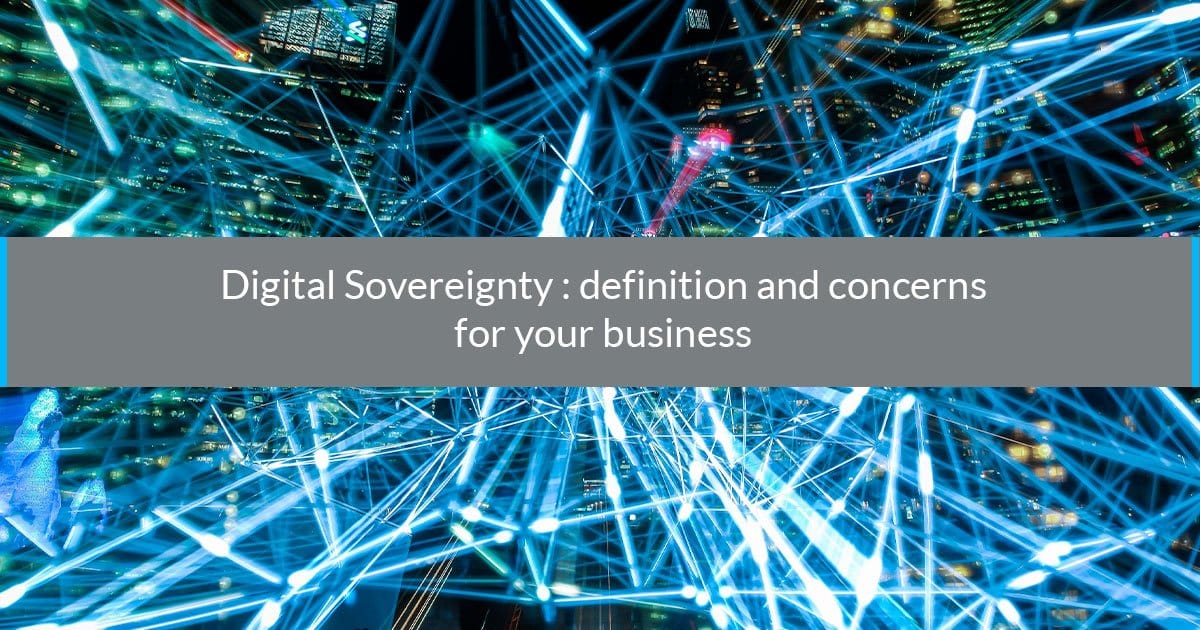The internet has profoundly changed our society: economically, socially and culturally. Up until recently, the question regarding the collection and usage of users’ personal data had not ever really been solved.
However, since the Snowden scandal and rise in cybercrime, this situation has evolved. Following a number of hacking scandals and data theft (Facebook, Yahoo, TV5, the American elections etc.), internet users are now very worried about their private lives’ confidentiality and their personal data’s security. Consequently, cybersecurity has become a dominant concern.
According to the Norton LifeLock Cyber Safety Insights report carried out in 2018, two in three French people (67%) say that they are more worried than ever about the safety of their personal data on the internet. 97% of those surveyed also feel that business’ must have their permission to be able to examine and use their data. Furthermore, 95% of the French population do not trust Social Media Networks to manage and protect their personal data.
Presented with this challenge, the term “Digital Sovereignty” has appeared.
What is “Digital Sovereignty” ?
Since the 25th May 2018 and the entrance of the General Data Protection Regulation, GDPR, Digital sovereignty is at the heart of this topic.
The notion of digital sovereignty appeared around 2010. This concept concerns the storage and protection of individuals personal data in its digital form.
According to TheWindowsClub, digital sovereignty addresses the issue that personal data is collected by different business’ across the web and held with or without the users consent. It is designed to give individuals control and ownership of their presence and representation in the digital world.
The idea is that personal data stocked on the internet must be kept in the country in which the person resides and must therefore be subject to the law of the country in question. According to the Digital Sovereignty Institute, cyberspace must be protected in the same way that we protect territory such as the land, sea and air space.
Concerns regarding Digital Sovereignty
A senate commission of inquiry surrounding digital sovereignty began its hearings on May 16th. Their objective is to consider France’s Digital Sovereignty and find the best way to overcome it.
This commission came to light following a report which states that: “the digital ecosystem is controlled and shaped by the most powerful stakeholders, digital giants whom are mostly American, (notably we referrer to GAFA, that is to say Google, Apple, Facebook and Apple), but not only that, it is those whom put pressure on the market and put us in a position where we are dependent on technology, addicted to their way of being, following their objectives and subjecting ourselves to their interests”
Another book called “Digital sovereignty” by Pierre Bellanger, the founder and general director of Skyrock, underlines that “Digital sovereignty is commanding our present day and our futures through the high-usage of technology and computer networks … as a Frenchman, our data, our memory, our projects, our way of thinking, our communication and our documents must without a doubt stay within our national territory under the protection of our laws and our court system.”
As seen above, whilst there are many worries surrounding cybersecurity, one of the major concerns of digital sovereignty is the question about where to store your data.
1. Strategic concerns
It is imperative to avoid the French data leak to foreign countries, notably to the USA.
It is important to maintain our autonomous capacity in decision making and action.
Finally, it is vital to preserve our national sovereignty as we face new threats generated by societies growing digitalisation.
2. Economic concerns
No society is sheltered from scientific, economic or commercial espionage; The protection of French businesses and the confidentiality of their data is therefore essential. Hence it is of great importance to ensure that this data remains housed on French soil.
Digital sovereignty is equally a way in which to fight against the purchase and usage of data for commercial and marketing reasons without consent of those concerned.
3. Political concerns
Digital sovereignty is a way for governing bodies to recreate citizens confidence in the state, whilst acting to protect them by protecting their private lives and private data.
It must equally enable the protection of infrastructure critical to the state.
4. National security Concerns
Cybercrime, hacking, manipulation, sabotage, terrorism etc. today data security has become a serious National Security concern. Every day, countries, businesses and citizens are confronted with major threats, such as identity theft, fraud and coercion.
We often think of the Cambridge Analytica scandal since user data was unknowingly collected and used to influence the elections.
Therefore, one of the major concerns regarding digital sovereignty is to make the cloud safer and more geared towards the needs of citizens than those of businesses and the state.
Solutions
Do you work on important projects and/or process sensitive data? Do you worry about the security of your data? Today, programs and software exist, which guarantee the security, confidentiality and sovereignty of your data. For instance, Wimi Armoured is a highly securitized collaborative platform, designed perfectly to manage your sensitive projects.
This collaborative solution offers you all the indispensable functions to effectively manage your projects (instant messenger, project schedules using the Gantt diagram, a calendar, etc), protected by end-to-end encryption, a reinforced authentication system and the housing of your data in Metropolitan France.
To conclude
We are witnessing a real awareness of the importance of keeping our data on French Territory. Attitudes are changing and laws are being passed such as the Digital Republic Act, enacted on 7th October 2016 at National level or the GDPR law at European level.
Whether you are a citizen or a business, you must carefully choose the software and websites which you are willing to trust.










